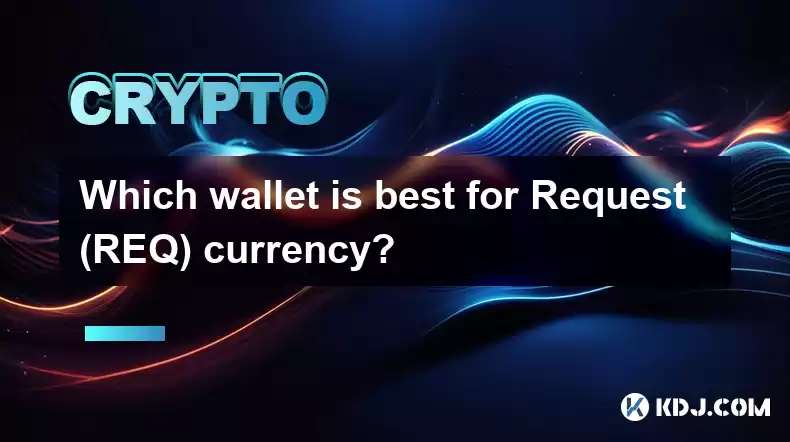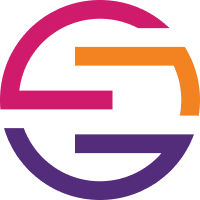-
 Bitcoin
Bitcoin $119000
-2.21% -
 Ethereum
Ethereum $4315
1.01% -
 XRP
XRP $3.151
-3.11% -
 Tether USDt
Tether USDt $0.0000
0.00% -
 BNB
BNB $808.5
-0.71% -
 Solana
Solana $175.8
-4.21% -
 USDC
USDC $0.9999
0.00% -
 Dogecoin
Dogecoin $0.2250
-3.92% -
 TRON
TRON $0.3469
1.77% -
 Cardano
Cardano $0.7818
-3.81% -
 Chainlink
Chainlink $21.47
-2.10% -
 Hyperliquid
Hyperliquid $43.30
-6.81% -
 Stellar
Stellar $0.4370
-2.84% -
 Sui
Sui $3.682
-4.40% -
 Bitcoin Cash
Bitcoin Cash $590.8
2.67% -
 Hedera
Hedera $0.2484
-5.20% -
 Ethena USDe
Ethena USDe $1.001
0.00% -
 Avalanche
Avalanche $23.10
-4.29% -
 Litecoin
Litecoin $119.2
-3.96% -
 Toncoin
Toncoin $3.409
0.90% -
 UNUS SED LEO
UNUS SED LEO $9.016
-1.29% -
 Shiba Inu
Shiba Inu $0.00001304
-3.82% -
 Uniswap
Uniswap $11.18
1.33% -
 Polkadot
Polkadot $3.913
-3.51% -
 Cronos
Cronos $0.1672
-3.08% -
 Dai
Dai $1.000
0.02% -
 Ethena
Ethena $0.7899
-4.70% -
 Bitget Token
Bitget Token $4.400
-1.23% -
 Pepe
Pepe $0.00001132
-5.93% -
 Monero
Monero $257.9
-6.44%
Which wallet is best for Request (REQ) currency?
REQ currency facilitates secure and low-fee payment requests and decentralized billing, enabling seamless financial interactions between individuals and businesses.
Dec 25, 2024 at 05:00 pm

Key Points:
- Overview of Request (REQ) currency and its use cases
- Comparison of popular wallets for storing REQ
- Considerations for choosing the best REQ wallet
- Detailed analysis of each evaluated wallet
- Frequently asked questions about REQ wallets
1. Understanding Request (REQ) Currency
Request (REQ) is an Ethereum-based decentralized currency designed for payment requests and decentralized billing. It enables individuals and businesses to request, send, and track payments seamlessly without relying on intermediaries. REQ operates on its own blockchain, allowing for fast and secure transactions with minimal fees.
2. Comparing REQ Wallets
Below is a comprehensive table comparing some of the most popular REQ wallets:
| Wallet Type | Features | Pros | Cons |
|---|---|---|---|
| Ledger Nano X | Hardware wallet | High security, offline storage, supports multiple cryptocurrencies | Expensive, requires physical device |
| Trezor Model T | Hardware wallet | Similar features to Ledger Nano X, user-friendly interface | May be less accessible for beginners, higher price point |
| MetaMask | Software wallet (browser extension) | Easy to set up, integrates with dApps, supports multiple cryptocurrencies | Less secure than hardware wallets, vulnerable to browser vulnerabilities |
| Trust Wallet | Mobile wallet | User-friendly interface, supports multiple cryptocurrencies, built-in exchange | May be less secure than hardware wallets, potential for mobile vulnerabilities |
| Coinbase Wallet | Software wallet (mobile and desktop) | Reputable platform, user-friendly interface, supports both self-custody and exchange accounts | Custodial wallet, less control over private keys |
3. Choosing the Best REQ Wallet
When selecting a REQ wallet, consider the following factors:
- Security: Hardware wallets offer the highest level of security through offline storage, while software wallets provide more convenience but may be less secure.
- Features: Some wallets offer additional features such as staking, dApp integration, or multi-currency support.
- Ease of Use: User-friendly interfaces are crucial for beginners or occasional users.
- Support: Choose wallets with reliable customer support in case of technical issues.
4. Detailed Wallet Analysis
a. Ledger Nano X:
The Ledger Nano X is a highly secure hardware wallet that supports REQ and other cryptocurrencies. It offers offline storage, a user-friendly interface, and multi-asset support. However, it comes at a premium price and requires a physical device.
b. Trezor Model T:
The Trezor Model T resembles the Ledger Nano X in security and features. It offers an advanced touchscreen interface, intuitive navigation, and multi-asset support. Its slightly lower price and user-friendly setup make it a suitable alternative for security-conscious users.
c. MetaMask:
MetaMask is a popular software wallet that integrates seamlessly with dApps and DeFi protocols. It supports REQ and a wide range of cryptocurrencies, but it is less secure than hardware wallets. Its browser extension functionality may expose it to potential vulnerabilities.
d. Trust Wallet:
Trust Wallet prioritizes user-friendliness and convenience. With its mobile-first design, it offers a smooth interface, multi-coin support, and in-app exchange capabilities. However, its mobile-based nature may reduce security compared to hardware wallets.
e. Coinbase Wallet:
Coinbase Wallet provides self-custody options while allowing users to access Coinbase's reputable exchange platform. It offers a user-friendly interface, multi-asset support, and staking rewards, but as a custodial wallet, Coinbase maintains control over private keys.
FAQs:
Q: Are these wallets specifically designed for REQ only?
A: No, these wallets support a wide range of cryptocurrencies, including REQ.
Q: Can I store other Ethereum-based tokens in these wallets?
A: Yes, most of these wallets except Ledger Nano X support multiple ERC-20 tokens.
Q: What if I lose my hardware wallet or mobile device?
A: Hardware wallets usually provide recovery seeds, while software wallets typically allow account recovery through private keys or mnemonic phrases.
Q: Is it safe to store REQ on a custodial wallet like Coinbase Wallet?
A: Custodial wallets offer less control over private keys, but renowned platforms like Coinbase prioritize security measures to protect user funds.
**
Disclaimer:info@kdj.com
The information provided is not trading advice. kdj.com does not assume any responsibility for any investments made based on the information provided in this article. Cryptocurrencies are highly volatile and it is highly recommended that you invest with caution after thorough research!
If you believe that the content used on this website infringes your copyright, please contact us immediately (info@kdj.com) and we will delete it promptly.
- Arc Blockchain: Circle's Layer-1 Play Amidst $428 Million Loss
- 2025-08-12 20:30:13
- XRP Price: Riding the Bull Cycle Wave or Hitting a Wall?
- 2025-08-12 20:50:12
- Cloud Mining in 2025: Chasing Passive Income and High Returns
- 2025-08-12 20:30:13
- XRP Price Forecast: Can XRP Hit $8, $12.60, or Even $100? Surge Drivers Analyzed
- 2025-08-12 21:10:13
- SUI Analyst Predicts Potential 7x Setup: Don't Ignore This Crypto!
- 2025-08-12 21:50:12
- Solana Price, Meme Coins, and 100x Gains: What's the Hype?
- 2025-08-12 20:50:12
Related knowledge

How to purchase Aragon (ANT)?
Aug 09,2025 at 11:56pm
Understanding Aragon (ANT) and Its PurposeAragon (ANT) is a decentralized governance token that powers the Aragon Network, a platform built on the Eth...

Where to trade Band Protocol (BAND)?
Aug 10,2025 at 11:36pm
Understanding the Role of Private Keys in Cryptocurrency WalletsIn the world of cryptocurrency, a private key is one of the most critical components o...

What is the most secure way to buy Ocean Protocol (OCEAN)?
Aug 10,2025 at 01:01pm
Understanding Ocean Protocol (OCEAN) and Its EcosystemOcean Protocol (OCEAN) is a decentralized data exchange platform built on blockchain technology,...

How to invest in Kyber Network Crystal v2 (KNC)?
Aug 12,2025 at 05:21pm
Understanding Kyber Network Crystal v2 (KNC)Kyber Network is a decentralized liquidity hub built on the Ethereum blockchain that enables instant token...

Where can I buy UMA (UMA)?
Aug 07,2025 at 06:42pm
Understanding UMA and Its Role in Decentralized FinanceUMA (Universal Market Access) is an Ethereum-based decentralized finance (DeFi) protocol design...

What exchanges offer Gnosis (GNO)?
Aug 12,2025 at 12:42pm
Overview of Gnosis (GNO) and Its Role in the Crypto EcosystemGnosis (GNO) is a decentralized prediction market platform built on the Ethereum blockcha...

How to purchase Aragon (ANT)?
Aug 09,2025 at 11:56pm
Understanding Aragon (ANT) and Its PurposeAragon (ANT) is a decentralized governance token that powers the Aragon Network, a platform built on the Eth...

Where to trade Band Protocol (BAND)?
Aug 10,2025 at 11:36pm
Understanding the Role of Private Keys in Cryptocurrency WalletsIn the world of cryptocurrency, a private key is one of the most critical components o...

What is the most secure way to buy Ocean Protocol (OCEAN)?
Aug 10,2025 at 01:01pm
Understanding Ocean Protocol (OCEAN) and Its EcosystemOcean Protocol (OCEAN) is a decentralized data exchange platform built on blockchain technology,...

How to invest in Kyber Network Crystal v2 (KNC)?
Aug 12,2025 at 05:21pm
Understanding Kyber Network Crystal v2 (KNC)Kyber Network is a decentralized liquidity hub built on the Ethereum blockchain that enables instant token...

Where can I buy UMA (UMA)?
Aug 07,2025 at 06:42pm
Understanding UMA and Its Role in Decentralized FinanceUMA (Universal Market Access) is an Ethereum-based decentralized finance (DeFi) protocol design...

What exchanges offer Gnosis (GNO)?
Aug 12,2025 at 12:42pm
Overview of Gnosis (GNO) and Its Role in the Crypto EcosystemGnosis (GNO) is a decentralized prediction market platform built on the Ethereum blockcha...
See all articles

























































































